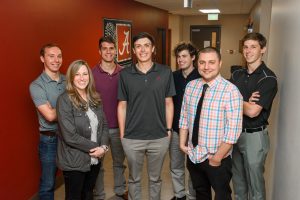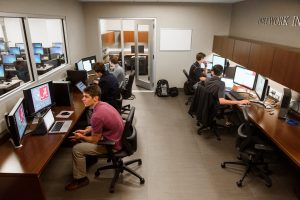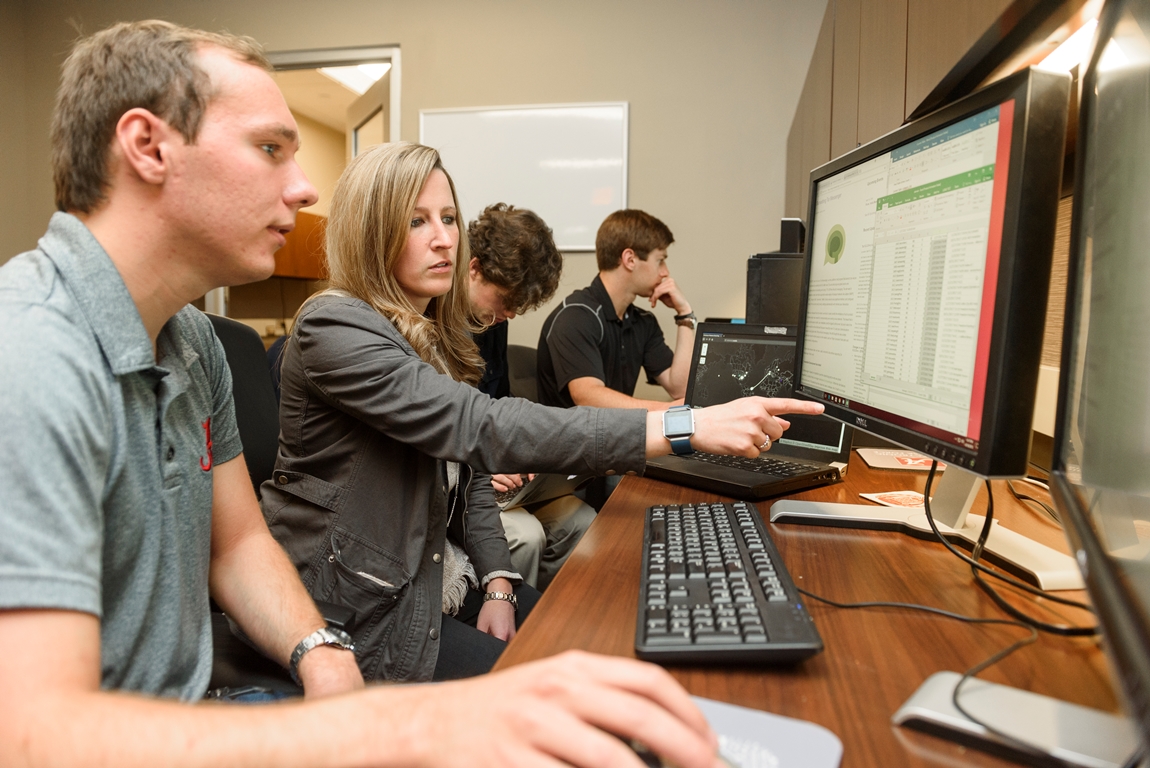The Office of Information Technology works to block dark web traffic from entering UA, but for five students in Cyber Hall, the dark web serves as a place of employment.

The Network Intrusion Lab, located in Cyber Hall, houses faculty and student researchers building mechanisms to monitor and analyze dark web network traffic. According to UA OIT, the dark web is a part of the internet that is only accessible by means of special software that allows users to remain anonymous to conduct mostly malicious activity.
The NIL consists of Dr. Diana Dolliver and Dr. Adam Ghazi-Tehrani, both of whom are assistant professors in cyber criminology and criminal justice, as well as five UA student interns:
- Austin Rife, a junior studying computer engineering and mathematics from Grand Rapids, Michigan
- Jake Wachs, a sophomore studying computer science from Annapolis, Maryland
- Austin Hose, a junior in New College studying cybersecurity from Meridianville, Alabama
- Spencer Fuhriman, a sophomore studying computer science from Meridian, Idaho
- Alex Dunbrack, a senior studying management information systems from Orlando, Florida
The First of its Kind
The NIL opened in January 2017 and is a joint project through the continued partnership between UAPD and the College of Arts and Sciences. The Office of Information Technology provides the NIL a secure research environment where students can work with faculty to build network analysis tools.

“In the NIL,” said Wachs, “we get to see the real-world implications of what technology can do.”
The NIL strives to increase awareness and knowledge about cyber activity, particularly with law enforcement. The NIL is a function of the Joint Electronic Crimes Task Force. Established in August 2014, the JECTF assists local and national law enforcement officials with processing digital evidence for use in cybercrime prosecutions.
“People become victims of cyberattacks just because they don’t know any better,” said Hose. “That’s what scares me, the lack of knowledge about cyber activity.”
The students in the NIL work not only to monitor network activity, but also to provide necessary information to local and federal law enforcement to prevent malicious activity and to help solve criminal cases.
“We take this data, and we determine how much of a negative impact it can have to society, and we share it with the proper audiences and law enforcement,” said Fuhriman.
The students working in the NIL bring a variety of experience and diverse majors of study to the group.
“I really enjoy working with the other students in the NIL,” said Dunbrack. “We’re all pursuing different majors of study, and when I hear their perspectives it really broadens my personal understanding of what cybercrime is becoming in this world. We’re all bringing different skills to the table.”
The research being conducted at the NIL is the first of its kind. Fewer than 10 academic institutions across the United States have a digital forensics task force, and the UA NIL, as a part of such task force, is the first of its kind.
“No one has done the research that we’re doing. We hope that our research opens up a new discussion in the cyber field of study.” Dr. Adam Ghazi-Tehrani, assistant professor in cyber criminology and criminal justice at UA
Network Intrusion Lab Internships

NIL internships are available to students in all majors of study.
“Through the NIL, we offer students a different way of thinking about problems,” said Dolliver. “There’s a difference between learning something in a classroom and actually applying the knowledge. These students are getting real experience.”
Undergraduate and graduate students can now apply for internships at the NIL at cybercrime.as.ua.edu.
“Students thinking about studying cybersecurity should have an interest in computer programming, and a passion for computing with a willingness to learn,” said Rife. “It’s so cool to learn how something works, and then reverse it to prevent somebody from getting in. You always have to think ahead. If there is something out there that you’re interested in, go after it. Ask a faculty member about it and start learning.”
